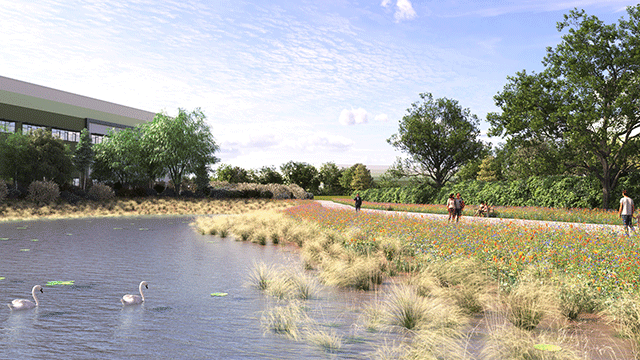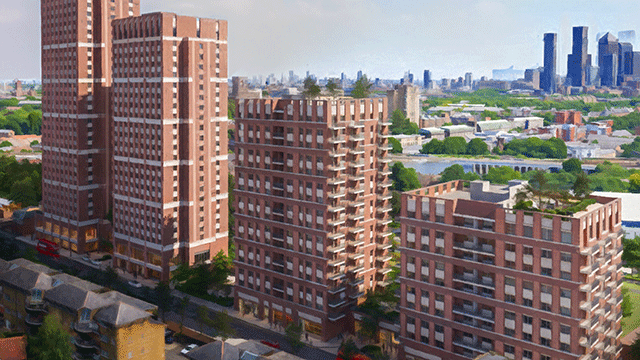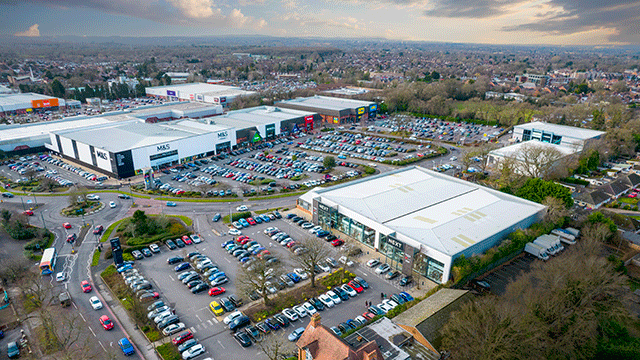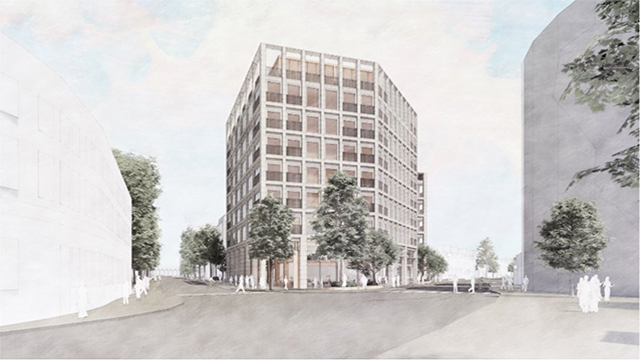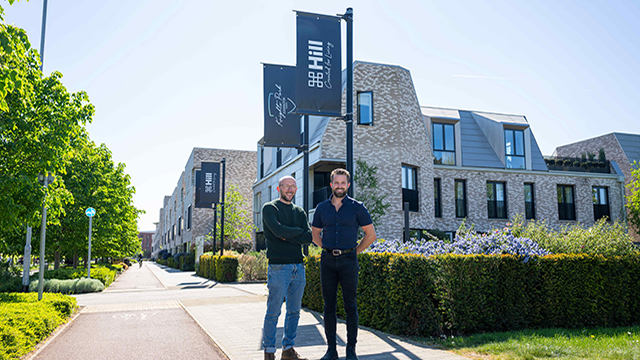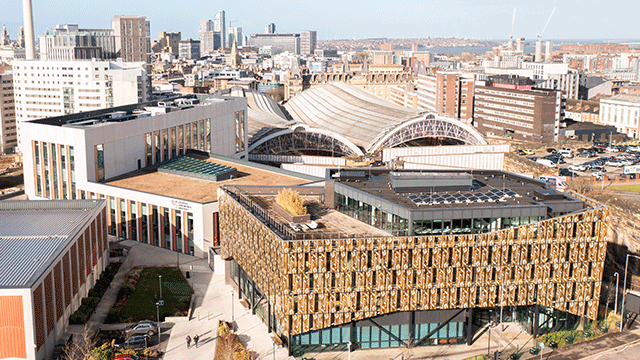A lot of people who took on new roles in 2020 began their positions during a lockdown. Sat at a home desk, not really able to get to know their colleagues, they were forced to get their heads down on the desk-based admin and to conduct any meetings they might have over Zoom or Teams.
The first few months as executive director – investment at Grosvenor Britain & Ireland were just the same for Rachel Dickie. She officially took up the role on 5 November, the day the UK went back into lockdown.
But Dickie couldn’t afford to just get to know the business during lockdown. She had a strategy to turn into action and an opportune period of time in which to start spending the £300m the business has set aside to expand further into the regions.
Dickie joined the landed estate from Legal & General Capital, where she had been head of urban regeneration for close to five years, working on the pension fund’s science and technology partnership with Bruntwood and most recently on secondment to Oxford to work on its development jv with the university. Prior to L&G she spent almost five years at US investor Tishman Speyer and earned her investment stripes at CBRE.
Scaling up
Her background means she knows the investment market, she knows the regions and she knows how to be patient with capital.
“I’ve come in to pull together what are essentially all of Grosvenor’s off-estate businesses and grow that platform,” says Dickie. “Grosvenor always had a UK-wide presence, but it’s probably smaller now than it has been for a long time, and part of James Raynor’s strategy when he joined as CEO about 18 months ago was to look at scaling that up again.”
Grosvenor’s off-estate portfolio includes the management of the 42-acre Liverpool ONE retail scheme, its strategic land business, which has a pipeline of some 18,000 homes, and phase one of its circa £1bn BTR scheme in Bermondsey, SE1, once it becomes operational.
“It’s all about creating new revenue streams for the business to complement what we get from the London estate,” says Dickie. “Our focus very much at the moment is on income. Once we have built that up, we can look at using our capital, bringing in partner capital and recycling capital from those investments to look at some longer-term repurposing or development options.”
Less than a year into the role, and just a few months after having her strategy for investment signed off, Dickie has already bought two operational assets in the regions and is hungry for more.
A really important part of what we want to do is leave these buildings better than we find them, particularly in terms of environmental performance
Better than before
In Manchester, Grosvenor has purchased The Hive, a 79,000 sq ft multi-let office in the city’s Northern Quarter, for £26.5m. Dickie calls it “the most corporate building in a non-corporate area” and sees opportunities to reposition the block and for Grosvenor to extend its ownership in the locality further.
In Birmingham, the firm has spent £26.3m buying the 85,000 sq ft 134 Edmund Street. Dickie says the Grade II listed building is a more conventional office that will need capital spent on it to bring it up to a Grosvenor standard. Plans are in place to reconfigure its reception area, introduce biodiversity and improve its efficiency from an EPC E rating to a B rating.
“A really important part of what we want to do is leave these buildings better than we find them,” says Dickie, “particularly in terms of environmental performance.”
Dickie still has around £250m of capital to invest if she is to turn Raynor’s ambition of rebalancing the portfolio away from just the London estate into reality. While other sectors have turned her head – life sciences in particular – regional offices, she says, are likely to be where the business directs most of that cash over the next six to 12 months.
“The key for me was to find sectors that we could invest in where there was a reasonable amount of stock in relatively liquid markets,” says Dickie. “Offices is quite a natural space for us. We own loads of offices on the estate, and yes the rents might be 10% of what they are in London, but we’ve got a track record and experience in managing offices, so while we are moving into new markets, we are de-risking it because it’s an asset class we understand.”
Grosvenor’s initial focus will be on the top-tier regional cities, including Bristol and Leeds alongside more activity in Birmingham and Manchester. Dickie doesn’t rule out investment in London either, provided it has something a little special about it.
“We’re obviously trying to diversify, so it has got to have something different to the estate,” she says.
The business has landholdings across the Oxford-Cambridge arc too through its strategic land business. But, while Dickie may admit that life sciences is one of her big loves, Grosvenor’s capital is patient enough to wait until the heat comes out of the market a little bit. The same is true for the retail warehousing market, she says.
We have an enormous opportunity to apply our skills and financial capacity to help urban centres adapt and succeed
Luxury of patience
“One of the luxuries that we have is that we can be opportunity-led to a certain extent,” says Dickie. “And as we evolve and we prove our model internally and to the market – and are able to find aligned partners to come with us – that gives us the option to look at expanding further and not being bound by geography or sector.”
Longer-term, Dickie says the team will invest alongside public and private sector partners in sustainable mixed-use neighbourhoods in urban centres, where Grosvenor can make a meaningful contribution to community success and local environmental ambitions.
“Our core expertise lies in collaboratively designing and managing mixed-use urban neighbourhoods that stimulate community success and lead the way in tackling climate change,” says Dickie. “By further scaling our investment across the UK alongside partners, we have an enormous opportunity to apply our skills and financial capacity to help urban centres adapt and succeed.”
She is keen to see Grosvenor not just build an operational estate across the regions but bring the more than 300 years of experience it has from London of being a custodian of place, rather than just an owner of buildings.
But Dickie knows that the business cannot do that alone, especially when it might own just one or two buildings in an area.
“We want to work with landowners and with developers to try and make stuff happen – to be able to get on with it and have real outcomes in a decent time period,” says Dickie. “We need those partnerships to make the most of the investment, and that’s public and private sector.
“So, let’s go into these markets that we have or haven’t invested in in the past and use that as a springboard to learn more, to get that network of local stakeholders, and to work out where we really can have an impact.”
I would be really, really proud in five years to have a truly national footprint where we have proven that we can make a financial return doing the right thing
Impact investing
That impact for Dickie and the Grosvenor business is buying buildings that they can leave in a better position than they bought them in – environmentally and financially – and in doing their bit to help “level up” the UK, showcasing the strength of the UK’s regions.
It is a big ambition, but Dickie is determined to succeed. “A strategy,” she says, “is only as good as your ability to achieve it.”
And that desire to achieve is exactly why she chose to join Grosvenor Britain & Ireland in the middle of a global pandemic. Dickie says she bought into Raynor’s vision for the business and believes that the skills she gained working at Tishman Speyer and across some of L&G Capital’s biggest investment projects meant she was perfectly positioned to help make that vision happen.
“I would be really, really proud in five years to have a truly national footprint where we have proven that we can make a financial return doing the right thing,” says Dickie. “That’s always been my goal. I want to be able to put Grosvenor in the spotlight and differentiate it, because I do think there is a real authenticity in its commitment, but it has been quite shy in telling people about it.”
Shy, until it gave Dickie and her team control of a £1bn-plus off-estate portfolio and £300m of firepower.
To send feedback, e-mail samantha.mcclary@eg.co.uk or tweet @samanthamcclary or @EGPropertyNews




